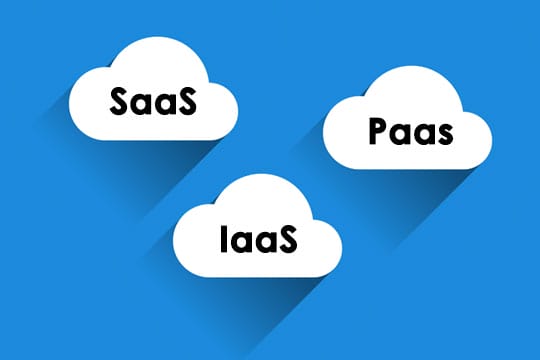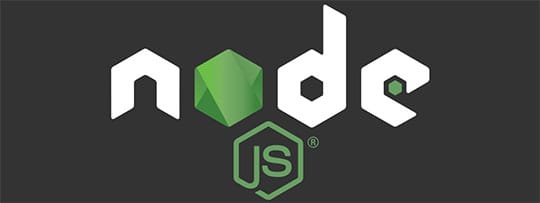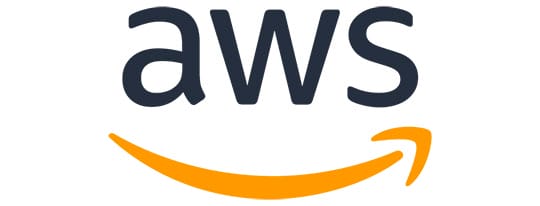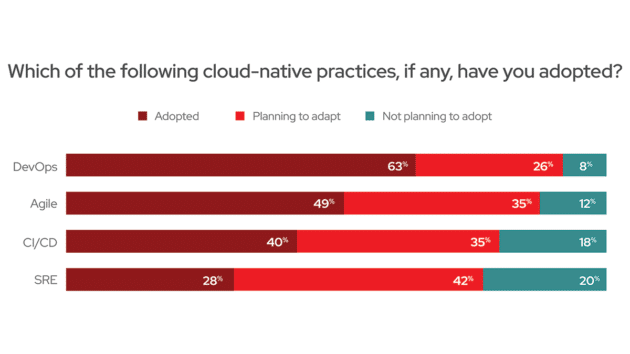If you’re wondering what programming languages you should know to work with cloud computing, look at what is trending and you may discover that you have quite a few ways to go about your career path. Cloud computing is a fast-growing solution for businesses who want to leverage the benefits of a secure and highly scalable cloud environment, which transforms the way you approach working with data.
According to a recent survey from RightScale, more than 80% of organizations have adopted cloud technologies for their business applications. These cloud-native apps are fully integrated with cloud platforms like AWS, Microsoft Azure, and Google Cloud Platform. In addition to these corporate-backed tech companies, some notable cloud adopters include New York Stock Exchange (AWS), NASA (Google Cloud Platform), Verizon Wireless (Microsoft Azure), etc.
Because of the fast cloud adoption, the number of cloud native developers worldwide is continuously growing – in just the last 12 months by 0.3 million, to 6.8 million total, according to Developer Economics 2021 survey. Simultaneously, the proportion of backend developers with skills in cloud native technologies remains relatively high, with just a 3% decline from 44% to 41%. This means that now is just the time to enter the playing field and learn programming with a focus on cloud computing.
Whether you are a seasoned developer looking to switch to cloud computing or just starting out in your journey, take a look at what the industry has got to offer, how to get started and progress in your career, and what is “the” language to learn for cloud computing in 2022.
What Is Cloud Native?

A cloud-native application is built for a cloud-first world, which means it’s a distributed application designed to run on multiple types of infrastructure. Rather than being a typical monolithic app written for an on-premises data center, these applications are architected for resilience over long periods of time with low to no maintenance requirements.
Recommended for you: Cloud Computing: 11 Great Tips to Ace the Modern Race Now.
Introduction to Cloud Computing Models:

Cloud computing is a generic term used to describe the process of using remote servers for data storage and processing with a plethora of various on-demand cloud services available to choose from. The so-called cloud computing stack comprises various cloud computing services, which you may want to consider for your specific business needs:
- IaaS (Infrastructure as a Service): an essential cloud computing service, i.e., data centers and server networks.
- PaaS (Platform as a Service): a data storage complemented with cloud development and deployment environment.
- SaaS (Software as a Service): a cloud-based application that can be accessed over the internet.
Your cloud solution itself can also differ depending on what type of cloud you choose to go for: public, private, or hybrid. At the end of the day, it depends on how much you are willing to compromise in terms of cost control, security, technical performance, etc. Cloud software development is versatile in what kind of custom solution you can come up with, so consider your options so that it perfectly aligns with your business goals.
The Best Languages for Cloud Computing

The best programming languages for cloud computing are typically those that support easy, flexible deployments on virtual machines. While we can’t cover every language here, let’s take a look at some of the most popular ones:
JavaScript

Since all major cloud platforms now support JavaScript, it makes it possible to create end-to-end cloud applications with JavaScript alone. In fact, JavaScript is now a competitive player in cloud computing with its flexibility and a vast selection of tools, libraries, and frameworks. JavaScript IDEs allow for integration with any cloud provider, and with available templates and client libraries, it’s never been easier to get started developing your own cloud application.
Node.js

Node.js is an open-source and cross-platform JS framework that allows developers to create server-side applications using JavaScript. Built on an event-driven model (similar to Go), it works in an asynchronous environment, which allows it to handle multiple requests at once while easily scaling with a higher number of transactions per second (TPS).
Since its inception in 2009, Node.js has gained in popularity due to its simple architecture and speed, making it one of the most popular JS frameworks for cloud computing today.
Java

Java is one of those languages that are popular for many different purposes. It’s an object-oriented language that can be used to build large applications that are flexible and easy to scale. Java supports polymorphism, static typing, and inheritance, which allows developers to re-use the code and create program modules. It is a cross-platform language that can run in different operating systems.
Java is a great language to know and use for cloud computing with a lot of its features and technologies It’s a robust language and easy to learn, making it an obvious choice when starting out. With Serverless architecture, things can be smoothly handled and done so much easier. Java includes a ton of ahead-of-time compilation. Additionally, it has great security features.
Furthermore, all major cloud providers – AWS, Microsoft Azure, and Google cloud platform (GCP) – offer first-grade support for Java in their SDKs, which makes choosing Java a no-brainer.
Python

Python has a growing number of cloud applications and frameworks. The Python interpreter has been implemented on most platforms and operating systems. The language keeps improving and expanding, which is another advantage of using Python.
Like Java, Python has features that make it simple to create scalable applications in multi-tenant environments. Also, like Java, it can be complex and verbose at times. Many argue though that these tradeoffs are worth it because of how powerful Python can be when used in conjunction with other languages (e.g., C/C++).
It also has several other frameworks, such as Zope and Twisted, which are designed to integrate into different types of cloud environments, like AWS or Rackspace. Python is also natively supported by AWS Lambda, which makes it a great language for developing serverless applications on Amazon Web Services.
Go

Go is a simple and efficient programming language for making quick and stable software. It was created by Google engineers who were familiar with C/C++ and other low-level languages.
The ability to easily run tasks in parallel means that as hardware becomes more powerful, applications can continue to scale without suffering from bottlenecks that cause slowdowns.
The language is simple, powerful, and easy to use. Golang is self-contained, which makes it compile very quickly, so you can expect quick results from your initial development efforts. Golang has been called the future of programming and it’s not hard to see why.
If you’re new to cloud computing but want a great starting point, Golang will make a fine choice. It can provide performance improvements that make the user experience better at an accelerated rate compared to most other languages.
You may like: Why Do You Need to Upgrade to Cloud-Based Platforms?
PHP

The ever-popular PHP powers some of today’s most popular sites including Facebook, Wikipedia, and WordPress. With continued enhancements and improvements throughout its existence, PHP has become one of the most widely used cloud programming languages.
The language is easy to learn and works with almost any web hosting plan (unlike more complex platforms). It supports many database systems (e.g., Oracle, MySQL, MongoDB, Postgre), and works with your run-of-the-mill operating systems (Windows, macOS, Linux).
It is an object-oriented language and can help develop complex and huge web applications on the cloud.
.NET

Perhaps one of the most promising languages in cloud computing, .NET will enable you to create multi-platform applications that can be hosted on the cloud. If you already have a basic understanding of C#, you’ll be able to jump right into building applications.
Furthermore, programming support is excellent. Many tools are available for coders and you’ll find thousands of projects on GitHub, alongside an active community that helps newbies get their feet wet in cloud programming.
.NET developers have all the tools to cook up dynamic web pages and cutting-edge solutions that can be viewed across different browsers.
ASP.NET framework is easy to use with .NET. It is effective for developing dynamic web pages and large applications, without the need to utilize large code. However, ASP.NET does come with language dependency. Because of this, logic and content need to be kept separately. Although, any development inconveniences are kept to a minimum.
C++

One of the most widely-used languages in cloud computing is C++. Although it’s a relatively old language compared to others on our list, it’s also one of the easiest to learn and use.
That makes it a prime choice for anyone who wants to get started in cloud computing but doesn’t want to spend too much time learning new programming languages.
Plus, since many large apps (like Gmail) are written in C++, there will be plenty of opportunities if you know how to code with it.
Ruby

If you want to build a cloud computing application, it’s best to learn a language specifically built for cloud computing. Ruby is one of those languages.
Not only does it offer a robust platform from which to develop software, but it also has an active community that makes building apps even easier. In fact, developers who have used Ruby on Rails report that it has one of the best communities around when you need help with coding or other related tasks. There are many resources to assist you with developing any app you can think of. And then, of course, you have some 60k frameworks and libraries for your assistance.
As a bonus, there are tons of tutorials available online if you really want to dig into developing web applications using RoR.
Other tips to know to become a cloud engineer/architect

To work as a cloud engineer or architect, you’ll need to have an in-depth knowledge of cloud computing. There are a few specific certifications you can get for it, but cloud engineers and architects are generally expected to have experience in other fields.
Cloud programming is highly specialized, so relevant industry experience is essential, and those with certifications from Azure, Google, and similar companies will be well-prepared.
AWS Certifications

Many businesses use Amazon Web Services (AWS) as their cloud provider. AWS supports popular programming languages such as Ruby, Python, Java, and more. You can get AWS certified as Solutions Architect, Developer, Cloud Practitioner, etc.
Azure Certifications

Microsoft certifications are a hot commodity in today’s labor market, and a Microsoft certification may be just what you need to stand out from your peers as you seek out a new job. There are many options available – from Developer Associate all the way up to Solutions Architect Expert.
Google Cloud Certifications

You can also pursue a Google Cloud certification and improve your chances of getting hired. Google provides three levels of exams: Foundational, Associate, and Professional. At the Professional level, you can get certified as Cloud Architect, Cloud Developer, Cloud Security Engineer, etc.
Once you obtain your certification, this puts you on an entirely new playing field. Still, you should understand that to remain a desirable hire, you should continue your education and adopt other software development practices, such as DevOps, Agile, SRE, CI/CD, etc which according to the Red Hat research were considered as a must-have for cloud native developers.
Image Sources: RedHat research.
You may also like: What You Should Know About AWS Cloud Security Issues.
Conclusion

Choosing a programming language for cloud computing requires an understanding of each platform’s strengths and weaknesses. First, it’s important to understand that not all platforms are designed equally. There are differences in cost and speed of deployment, even within industry-standard technology.
Many early cloud service providers have ended up building custom languages to support their services, while others have become so popular that they can be adapted to run on multiple systems. But with several programming languages emerging as viable options, it’s important to choose the language that is going to be beneficial to the platforms you want to work on.
This article is written by Valentina Synenka. Valentina is a chief marketing officer at Symphony Solutions, the Dutch-based cloud & agile transformation company. Valentina has a master’s degree in economics & psychology. For the last 10 years, she has been leading the marketing department at the company, always staying on top of cloud industry trends and tendencies. You can follow her on LinkedIn.






